Volcanoes!: Making Science Accessible to Children Who Are Deafblind
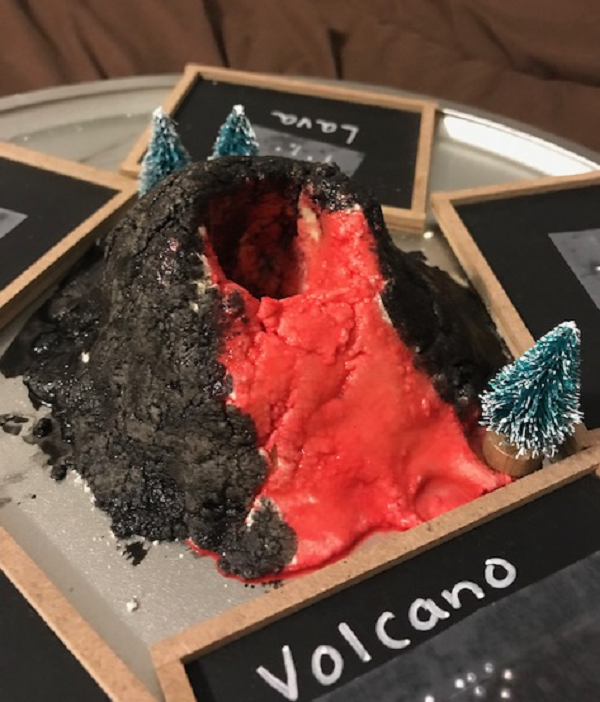
My son Liam (age 8, deafblind, braille reader, 3rd grade mainstream classroom) brought home a homework assignment earlier this month. The assignment was to research about volcanoes and to create a model of one at home and bring it to school later for a "walk-about museum" that parents were invited to attend. After receiving this assignment I instantly was thinking of accessible ways for Liam to learn about volcanoes. I did not readily have braille books at home about volcanoes he could read, especially at his level. I could not send him on the computer to research the internet (he is currently learning how to use his refreshable braille screen technology at school, but is not yet at the level to browse the web). I thought of two options that would work for Liam to learn about volcanoes:
- Research volcanoes myself on the internet and share my results with Liam.
- Create a short book myself for Liam about volcanoes that he could read himself. I typed up some basic facts about volcanoes and also included key vocabulary words (such as erupt, lava and crater). Thankfully my son's school has an embosser machine (saves me a lot of time not having to braille it myself-we are blessed!). I emailed a member of Liam's team (thanks Hannah!!) and she was able to run the volcano facts through the machine, bind the book, and found time to interline the story for me!
Project Volcano!
- volcano book (homemade)
- label paper
- wooden rectangle pieces (amazon.com, they were mini-chalkboards)
- pizza tray (bought it at the dollar tree)
- fake trees (Hobby Lobby or Michaels)
- homemade play dough
- paint
- vinegar and baking soda
- Discussion about volcanoes including key vocabulary.
- Read the volcano book together.
Text of Volcano Book:
Volcanoes
The surface of the earth is called the crust. The crust is broken by into big pieces called plates. Magma flows under the crust. Magma is very hot melted rock. A volcano is near the crack of the plate. A volcano looks like a giant mountain with a hole in the top called a crater. When a volcano erupts the magma shoots out of the volcano and is called lava. The lava can destroy things but it also can create new mountains and islands and can make the soil fertile.
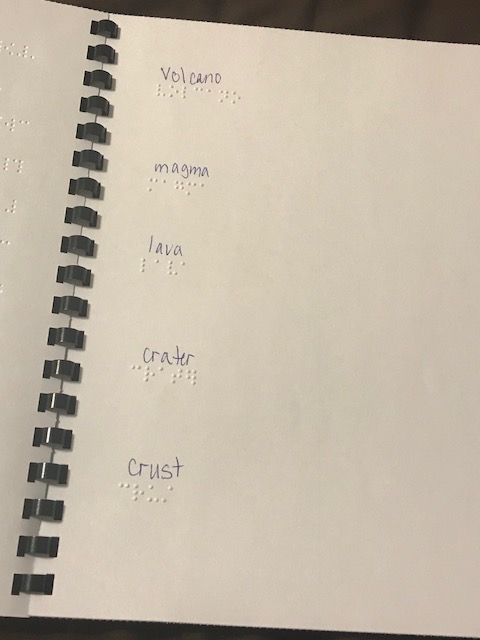
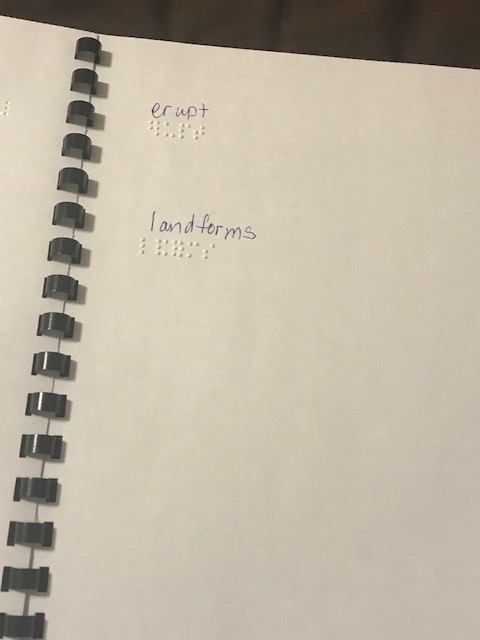
- Discussed again and reviewed key vocabulary discussed in the book.
- Created the volcano together (we used homemade play dough). Discussed the features of the model of the volcano. Let dry over night.
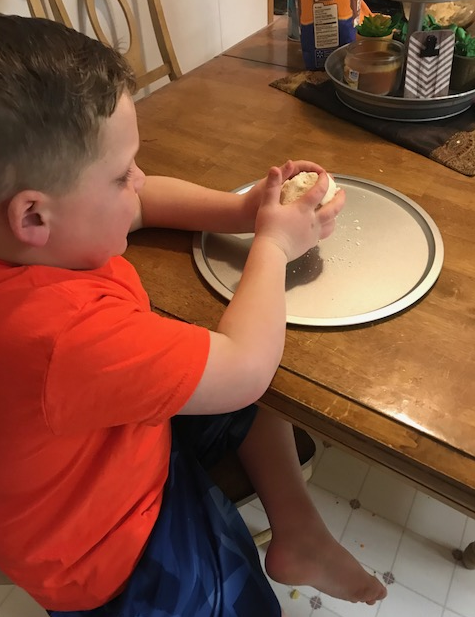
- Painted the volcano together.
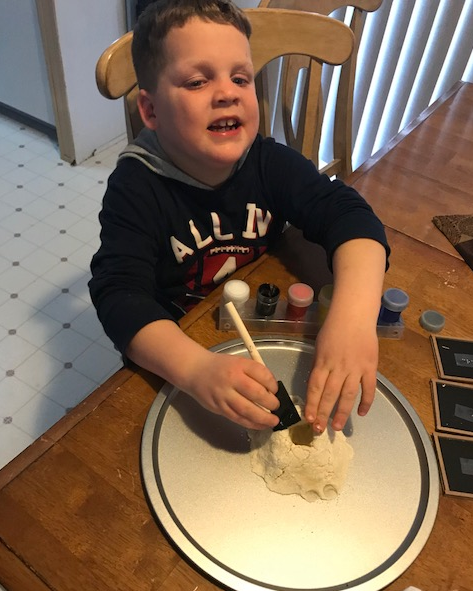
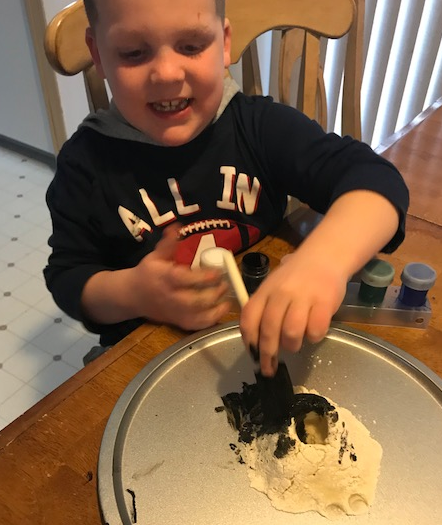
- Reviewed key vocabulary. Liam brailled the key vocabulary on label paper and placed them onto little wooden squares to put on his model of a volcano.
- Carefully brought the volcano to the "walk-around museum" at school. Liam loved getting to tell people about his volcano and what he learned about volcanoes!
- Used vinegar and baking soda to act as "lava" and made the volcano "erupt" at home. He absolutely LOVED this part. We made the volcano "erupt" again and again!
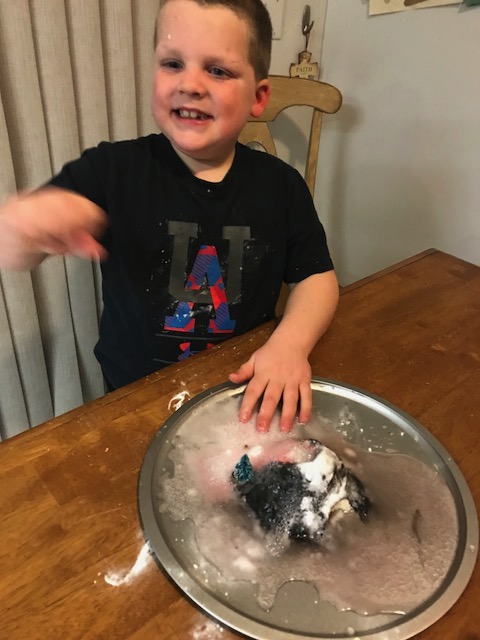
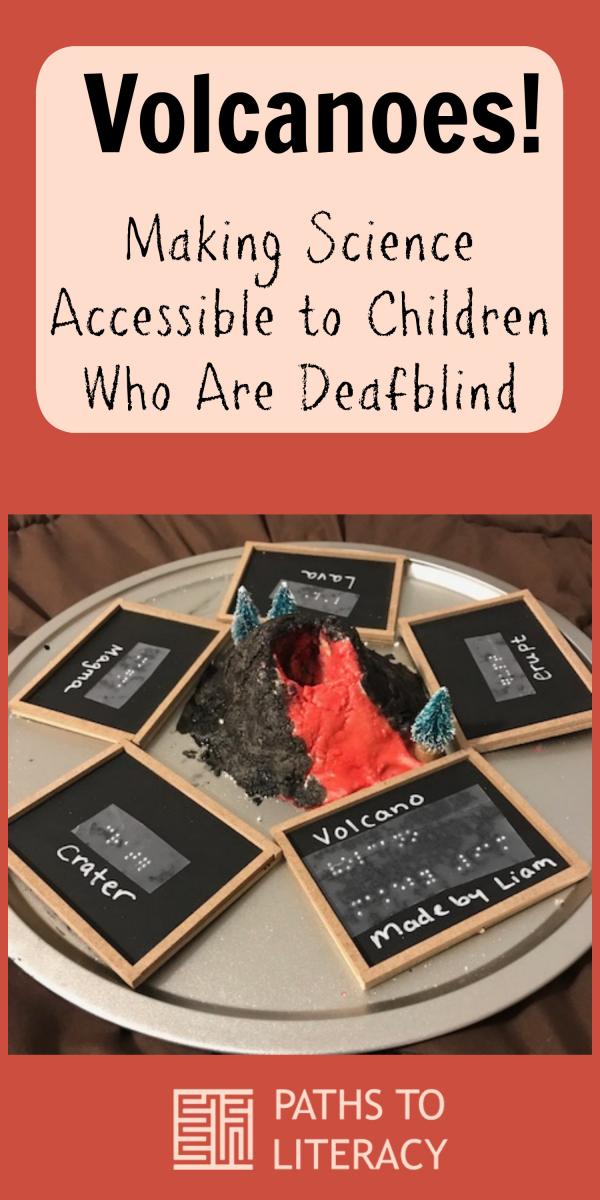

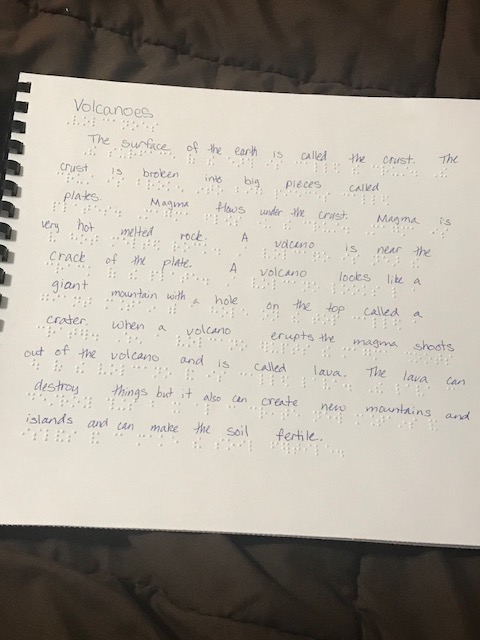
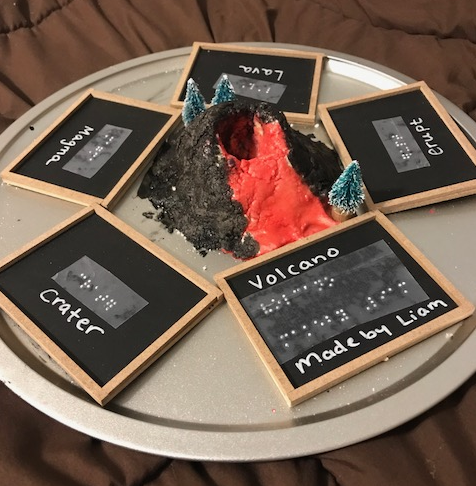
Comments
Making Science accessible to children who are deaf-blind